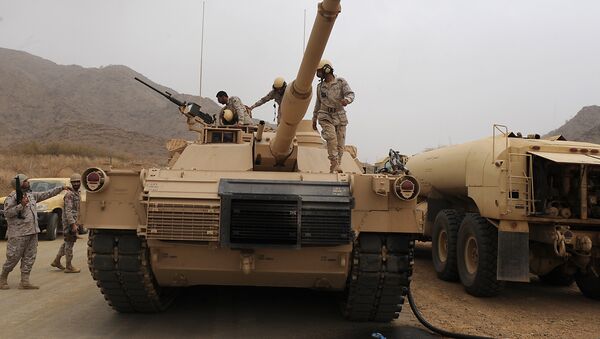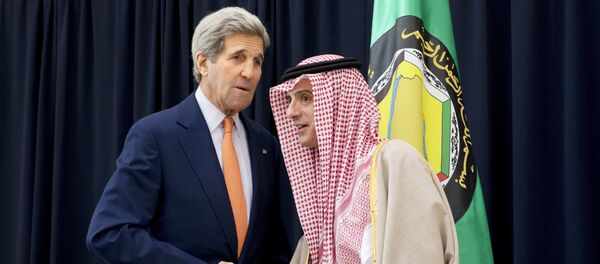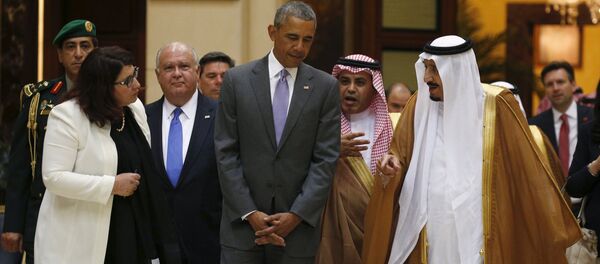Embarrassingly for London, "UK special forces are operating inside Yemen in support of the onslaught," he notes.
"Yemen of course has very little oil of its own," the author remarks.
"But where the West gets involved in conflict, it is almost always at base either about oil resources (e.g. Kuwait, Libya, Syria, Iraq) or oil routes (e.g. Afghanistan, Georgia, Balkans). It turns out that Britain's unflinching military support of Saudi Arabian aggression in Yemen is about oil routes," Murray elaborates.
But what lies at the root of the plan?
It is expected that the canal will allow ships to reduce their trip through the Strait of Hormuz almost by half. What is more important, Iran is keeping an eye on the strait. By bypassing Hormuz, Saudi Arabia hopes to overcome this "obstacle."
"Kuwait, Qatar, and the UAE could export their oil through this canal up to the Arabian Sea, thus avoiding the Strait of Hormuz," Gulf News reported in September 2015.
In accordance with the plan, 630 kilometers of the canal will be built in Saudi Arabia and 320 kilometers… in Yemen.
"We agreed to name it Salman Canal, after the king of Saudi Arabia"https://t.co/7VdqLJXTM4 pic.twitter.com/UJK051lO6Q
— Taufiq Marhaban (@TaufiqMarhaban) 13 февраля 2016 г.
"The canal will add 1,200km of clean and splendid coasts in the Empty Quarter and will have 20 tunnels for cars and pedestrians on the Saudi side, while it will add 700km of waterfront to Yemen and revive the desert areas in the east of the country," Saad Bin Omar of the Riyadh-based Arab Century Centre for Studies said, as quoted by the media outlet.
To complicate matters further, "the eastern Yemeni regions through which it would pass are predominantly Shia, this is a major problem for the Saudis," Murray stresses.
"There would need to be a Yemeni government not only willing to agree, but both able and willing to enforce security on the canal," he explains.
And it means Riyadh needs not only to establish a government loyal to the Saudis in Yemen but also to maintain effective military control of the country.
Remarkably, Washington and London are backing Riyadh and its military adventure, while American thought leaders admit that Saudi Arabia's activities in Yemen and Syria undermine the regions' stability.
"Iranian control of the Strait of Hormuz has long been the nightmare of the American right," Murray notes, adding that "Western elite support for the appalling Saudi regime is a given, because Saudi cash pumps primarily into banking, armaments and high end property, the three areas most dear to the interests of the 1%."
"The United Kingdom is supporting yet another war for oil. But don't worry about it, the corporate media is full of the Queen's birthday! Stop thinking and shout hurrah!" Murray remarks.




